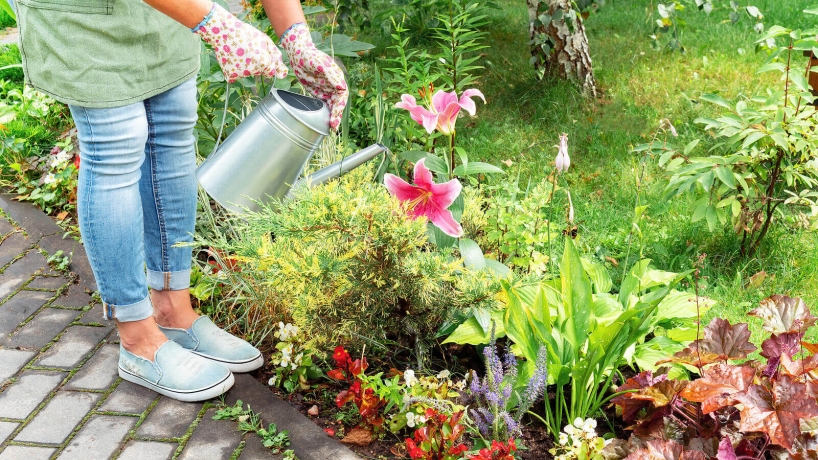
May 3rd, 2022 by
Gardening is such a rewarding hobby because a beautiful garden can bring great joy. Your garden is really an extension of your home during the warmer months of the year, like adding an extra room. Plus, it allows you to enjoy the sunshine and fresh air, which are really important for mental and physical health.
Don’t be daunted. While it can seem that to be a gardener you have to have a wealth of knowledge and lots of time, you can actually create a lovely garden with just some basic knowledge, and you will develop skills as you go along.
Here are a few things to know that will get you started as a beginner gardener.
You don’t have to be a horticulturist

While Alan Titchmarsh and Monty Don will almost certainly create a nicer garden than you will, there are some insider tips that will give you a great head start without having to know the Latin names for plants. The most useful piece of information you need, before you even start looking at plants, is the conditions you have in your specific space.
This means understanding how much sun you get, where you get it, and knowing what type of soil you have. Getting to grips with these vital details will allow you to choose plants that will thrive in the conditions you have.
How to determine these conditions
This doesn’t have to be complicated at all. Just monitor the progress of the sun around the garden. Some areas will get it for a lot of the day, and some won’t get hardly any at all. Knowing the aspect of your garden is also useful (ie, whether it’s north or south facing) as this will affect how much sun it gets. Sunlight is actually more important than temperature but remembers that many plants prefer shady areas so don’t feel disheartened if you have a north-facing garden that doesn’t get a great deal of sun.
The soil is where plants get all their nutrients. By knowing how acidic or alkaline it is, how much light penetrates it, and how much moisture it retains, you can make informed choices. A simple soil testing device (that can cost less than £10) will give you this information.
Once you know these things you can choose plants that thrive in your specific conditions. Either do a bit of research online or often labels on plants will include this information, making it really easy to select the plants that will do well (and avoid buying the ones that won’t).
Ongoing maintenance is just as important as planting

Choosing plants and arranging them around the garden is the exciting part. Doing the ongoing maintenance is less so but if you know the basics, you can keep the workload to a minimum and focus on what’s going to make the most difference.
For example, applying iron sulphate to the lawn every couple of months will keep the grass green and strong. Picking your moment, and applying before a rain shower, will save you the job of watering it in.
We all appreciate that we need to water plants when there’s not as much rain over the summer but knowing that giving them a good soak once a week is more productive than giving them a little every day will not only give you better results but is less labour intensive. Sprinkle some plant food into the borders every couple of weeks before you do it and you will further help your plants to thrive.
It’s not just about plants
Plants are the colourful, attention-grabbing elements of your garden but actually, the majority of the space is more likely to be lawn and hard surfaces such as patios, paths, and decking. By giving hard areas a good clean, using a patio cleaner or a black spot remover (if you have black lichen), is easy to do but will make a huge difference to the overall look of the garden.
Apply iron sulphate to grass, as mentioned above, or if you have artificial grass, give it a clean with an artificial grass cleaner which will make it look nicer, be more hygienic (especially if you have pets who toilet on it), and even smell fresher.
Comments
Leave a reply
Your e-mail address will not be published. All fields are required


